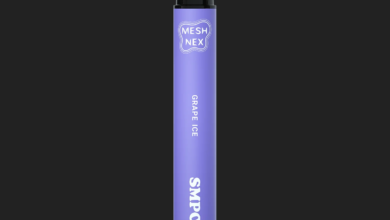How Do Truckers Find Loads?

Truckers play a vital role in the global economy by transporting goods across vast distances. To keep their wheels turning and their businesses profitable, truckers must continuously find loads to haul. But how do they locate these loads in a world where the demand for freight services is constantly changing? Here, we will discuss the methods and strategies truckers use to find loads and keep their trucks moving efficiently.
1. Load Boards
Load boards are online platforms where truckers can find available loads. These websites and apps connect shippers and freight brokers with trucking companies and independent owner-operators. Load boards list various loads, along with details such as the pick-up and drop-off locations, the type of cargo, and the payment offered. Truckers can search for loads that match their preferences and availability. Visit Shiply’s load board, where thousands of loads available for truckers.
Some popular load board platforms include DAT Load Boards and 123Loadboard. Truckers can often subscribe to these services for a monthly fee, gaining access to more features and a wider range of load listings.
2. Freight Brokers
Freight brokers act as intermediaries between shippers and truckers. They help shippers find carriers to transport their goods and assist truckers in finding suitable loads. Brokers have extensive industry connections and can negotiate rates and terms on behalf of truckers. Building relationships with reliable freight brokers can be a valuable strategy for truckers looking to secure consistent work.
3. Networking
Networking within the trucking community can be a powerful tool for finding loads. Truckers often communicate with fellow drivers, carrier companies, and industry professionals to share information about available loads and upcoming opportunities. Trucking associations, social media groups, and industry events can provide opportunities for networking and building valuable connections.
4. Direct Contracts with Shippers
Establishing direct contracts with shippers is a goal for many truckers, as it can lead to consistent and lucrative work. This typically involves building a reputation for reliability and professionalism within the industry. Shippers may reach out to trucking companies directly or respond to requests for proposals (RFPs) to secure long-term transportation contracts.
5. Company Dispatchers
Truckers who work for larger trucking companies often rely on in-house dispatchers. These dispatchers are responsible for assigning loads to drivers and ensuring that they follow a predetermined route and schedule. While independent owner-operators don’t have in-house dispatchers, they may partner with smaller carriers that provide similar services.
6. Mobile Apps
In today’s digital age, mobile apps have become increasingly popular tools for finding loads. Many load board platforms offer mobile apps that allow truckers to search for loads, communicate with shippers, and manage their operations on the go. These apps provide convenience and flexibility, enabling truckers to stay connected and find loads from anywhere.
Naa Songs is a popular online platform for downloading and streaming music from various genres. It offers a wide range of songs in an easy-to-use interface, providing users with a seamless music-listening experience.
Conclusion:
Truckers have several methods at their disposal to find loads and keep their trucks on the road. Whether they rely on load boards, freight brokers, networking, direct contracts, or mobile apps, the key is to stay proactive and adaptable in a constantly evolving industry. By leveraging these resources and strategies, truckers can maximize their earning potential and ensure a steady flow of work in the competitive world of long-haul transportation.





